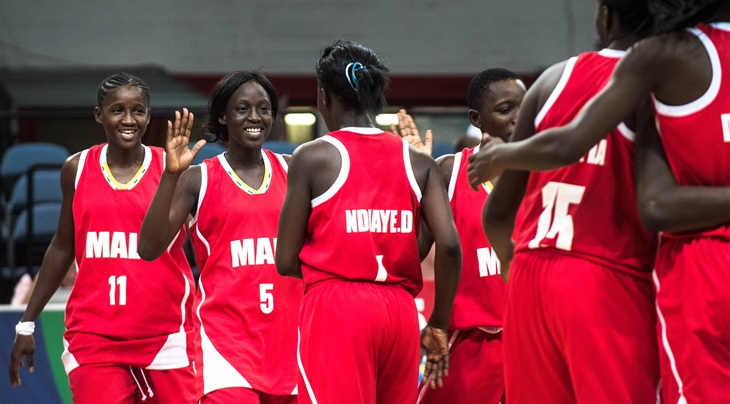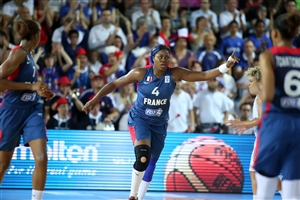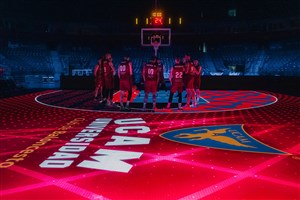
Exciting challenges coming up in Africa in 2015
SHEFFIELD (Julio Chitunda's African Message) - Remember the euphoria of watching Africa's top performers go up against each other over the course of a 10-day or so event, usually held in a pre-selected African country?
If you do, you might know that the biennial AfroBasket action (Women and Men) will be back this summer as the highlights of FIBA Africa's annual calendar.
A lot will be at stake in both tournaments, but I will discuss it later in this column.
For now, let me just say that this could be one of the busiest and most challenging years in African basketball history because of its continuing increasing popularity registered over the last decade.
Starting with the four youth teams that will try to improve the course of African basketball at the 2015 FIBA U19 World Championships for Men and Women, in Greece and Russia, respectively, and ending with the Olympic Games coming up next year.
Egypt, the winners of the 2013 FIBA Africa 18 Championship, and runners-up Tunisia, are familiar with the world stage atmosphere, considering their previous appearances, accomplishing modest results in Latvia in 2011.
Nevertheless, the FIBA U19 World Championship should be just the opportunity that Egypt's Ahmed Abdelrahman and Tunisia's Achref Gannoni have been waiting for to take their basketball careers to the next level. Both national teams have shown impressive progress over the past few years, and, certainly, they would not miss a chance of competing against future world stars.
In the Moscow region of Chekhov, Russia, Mali and Egypt will bear the African flag, aiming for the best possible results in the FIBA U19 World Championship for Women.
Having followed Mali compete in the past few years - especially in last summer's FIBA U17 World Champions for Women in Klatovy and Pilsen, Czech Republic - I feel that anything is possible with this Mali team which continues to show a lot of character tournament after tournament.
As for Egypt, a defeat to Mali in the Final of the 2014 FIBA Africa U18 Championship for Women in front of their home fans, in Cairo last September, should only work as a motivation for the Pharaohs in Moscow. It's their second appearance in tournament since 2011, so it has to be positive experience somehow.
As I mentioned earlier in this column, AfroBasket 2015 (to be held in Tunisia) and AfroBasket Women 2015 (scheduled to take place in Cameroon) will bring, not only the very best of what Africa can offer, but it will also qualify directly the continent's representatives to next year's Olympic Games in Rio de Janeiro.
As I write this, I feel that Tunisia, Senegal and Egypt in the men's event and Mozambique, Mali and Cameroon, in the women's tournament seem to be the frontrunners to clinch direct qualification for Rio 2016 because of their recent performances.
However, 2015 will also measure FIBA Africa's capability to spread the game to grassroots all over the continent, particularly with the U16 tournaments.
Over the course of the past few years, the U16 events rarely managed to bring together the required 12 teams as some national sides withdrew for administrative reasons affecting local federations. In the Boys Championship, the event gathered nine national teams in 2009 and 2013, and eight teams in 2011.
In the Girls event, the situation is even more alarming, although it keeps registering a steady progress with five teams in 2009, six in 2011 and eight, a couple of years ago.
Challenges will occur throughout the year.
This is the year that the All-Africa Games return to the Republic of Congo's capital of Brazzaville.
This is also the year that South Africa will become the first-ever African country to host an NBA exhibition game.
2015 could not be more exciting than that.
Julio Chitunda
FIBA
FIBA's columnists write on a wide range of topics relating to basketball that are of interest to them. The opinions they express are their own and in no way reflect those of FIBA.
FIBA takes no responsibility and gives no guarantees, warranties or representations, implied or otherwise, for the content or accuracy of the content and opinion expressed in the above article.

















